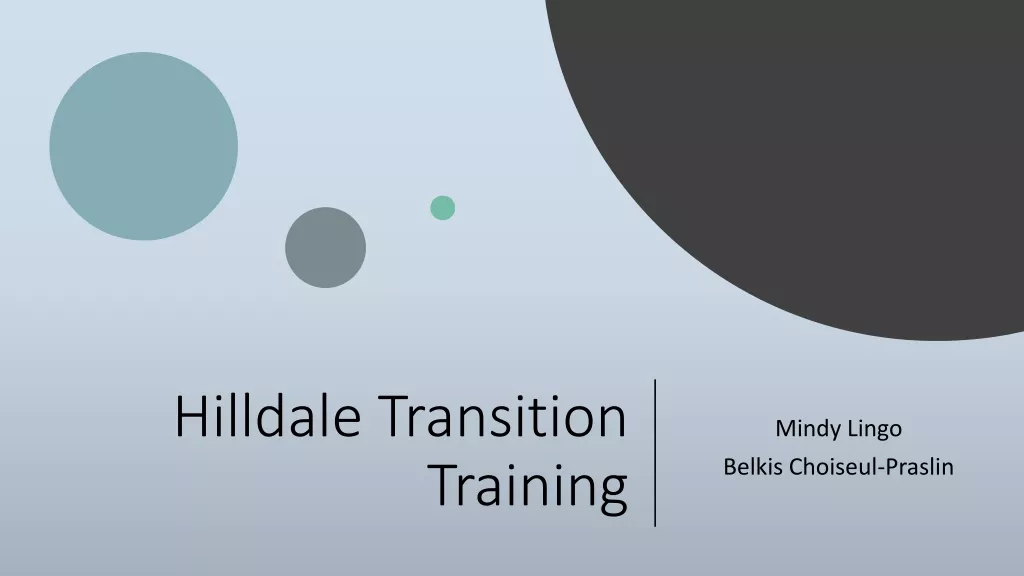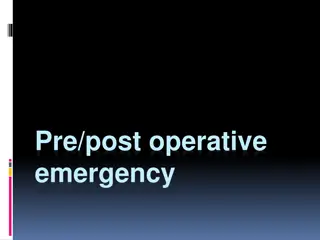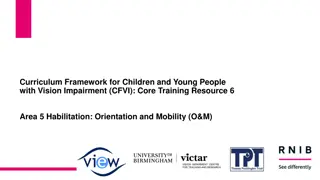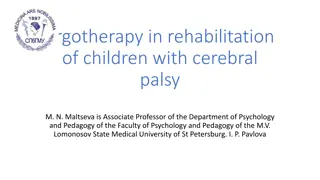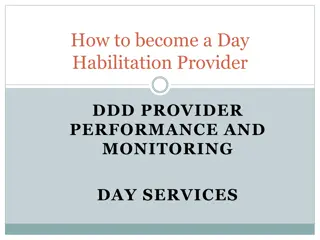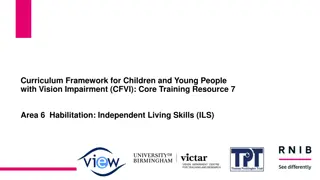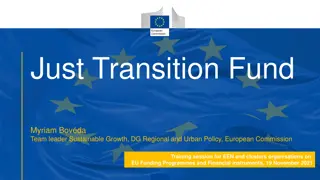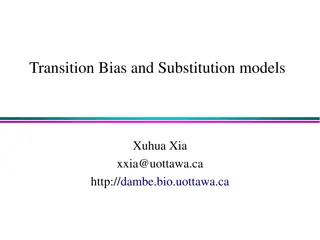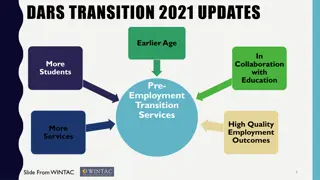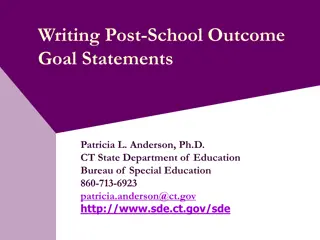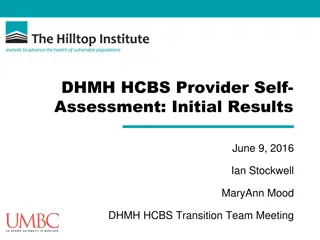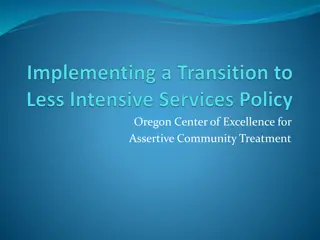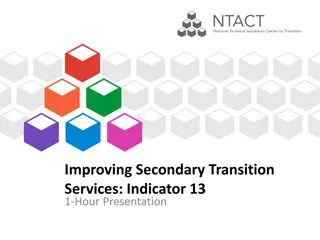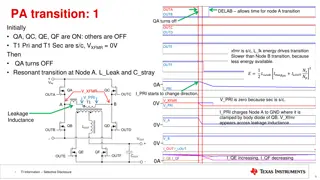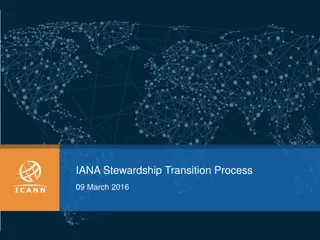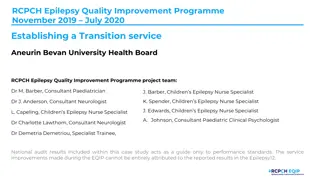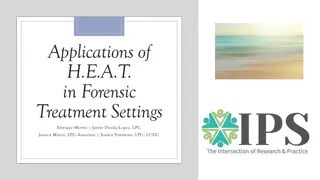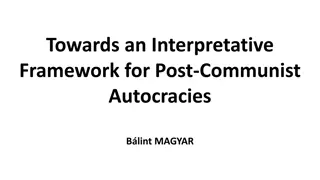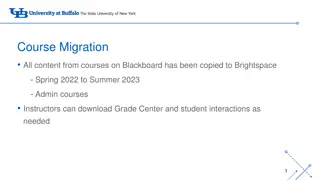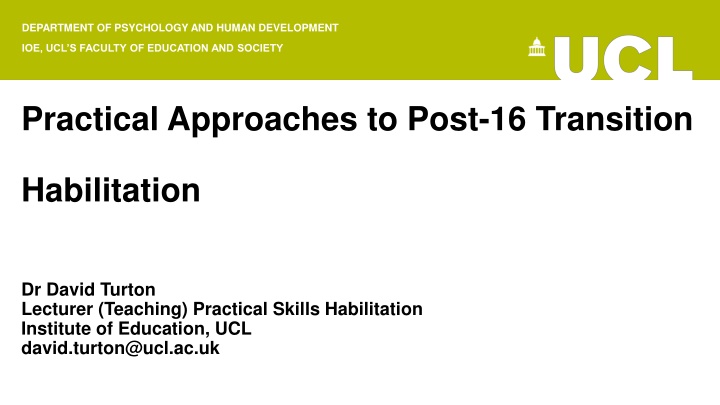
Practical Approaches to Post-16 Transition and Habilitation in Education
Explore practical skills and opportunities for successful transition post-16, emphasizing independence development, social dynamics, and long-term planning within educational settings. Focus areas include self-knowledge, problem-solving, mobility support, and auditing access for a seamless shift to college or sixth form.
Uploaded on | 0 Views
Download Presentation

Please find below an Image/Link to download the presentation.
The content on the website is provided AS IS for your information and personal use only. It may not be sold, licensed, or shared on other websites without obtaining consent from the author. If you encounter any issues during the download, it is possible that the publisher has removed the file from their server.
You are allowed to download the files provided on this website for personal or commercial use, subject to the condition that they are used lawfully. All files are the property of their respective owners.
The content on the website is provided AS IS for your information and personal use only. It may not be sold, licensed, or shared on other websites without obtaining consent from the author.
E N D
Presentation Transcript
DEPARTMENT OF PSYCHOLOGY AND HUMAN DEVELOPMENT IOE, UCL S FACULTY OF EDUCATION AND SOCIETY Practical Approaches to Post-16 Transition Habilitation Dr David Turton Lecturer (Teaching) Practical Skills Habilitation Institute of Education, UCL david.turton@ucl.ac.uk
What opportunities does transition afford? A fresh start Rehearsal of a process Meaningful contexts for informed decision making Opportunities to establish and maintain friendships Increased control over how time is spent and managed Increased exposure to broader social systems and dynamics Opportunities to make mistakes and reflect on these mistakes Greater independence (and interdependence) Different relationships with VI / SEND professionals, e.g. ROVI and many more!
successful transition from school relies upon long- term planning and attention being given within school, through the development of independence skills. Graeme Douglas, Rachel Hewett and Mike McLinden (2020)
Skills and knowledge checklists Example area Example details Self knowledge Self advocacy Problem solving Emotions Relationships Money Time management Mobility support preferences, eye condition requesting menus, challenging unhelpful assumptions tutor is ill, bus or taxi hasn t arrived practical self-regulation strategies, vocabulary tutors, support staff, friends, romantic partners cash, banking apps, accounts travel times, academic timetable cane skills, sequencing
Auditing access Social access Environmental access Where students gather Where students go for lunch Tutor groups vs. course groups Access to tutors Enrichment opportunities Areas relevant to arrival/departure Areas relevant to social participation Areas relevant to study Areas relevant to sport, clubs, etc.
Practical Approaches Meet with the family Travel arrangements Money and banking Clothing, food preparation, self-care Meet with college / sixth form Practical support arrangements Pastoral support Training needs of staff and peers Focus on broader curriculum (CFVI) Meet with previous students Role models What to expect
Habilitation input for the student Years 10 & 11 Arrange for older students with VI to return and give a talk Support visits, ahead of post-16 applications / choices Formatively assess, then teach transition competencies Pre-transition Visit the chosen post-16 setting Explore various transport options Teach relevant spaces, routes, and associated mobility skills Teach and transfer daily living skills across new settings Post-transition Reflect, with the student, on the transition process Identify further training needs, for both student and setting
Habilitation input for the setting Evaluate accessibility and SEND support at post-16 settings Offer, deliver, and/or signpost relevant VI training for post-16 staff Years 10 & 11 Explore the setting thoroughly layout, systems, routines, culture Compile specific advice on social and environmental access Facilitate active student/staff engagement during transition visits Agree responsibilities, e.g. writing of emergency evacuation plan Pre-transition Reflect, with the setting, on the transition process Identify further training needs, for both student and setting Continue to support the integration and delivery of the CFVI Post-transition
Useful documents Yorkshire & Humber Habilitation Progress Tracker 2.0 https://habilitationviuk.org.uk/habilitation-progress-tracker-2-0/ Curriculum Framework for Children and Young People with Vision Impairment https://www.rnib.org.uk/professionals/health-social-care-education-professionals/education- professionals/curriculum-framework-for-children-and-young-people-with-vision-impairment/ ECC Essentials: Teaching the Expanded Core Curriculum to Students with Visual Impairments Allman, C.B., Lewis, S., & Spungin, S.J. (Eds), 2014. New York: AFB.

